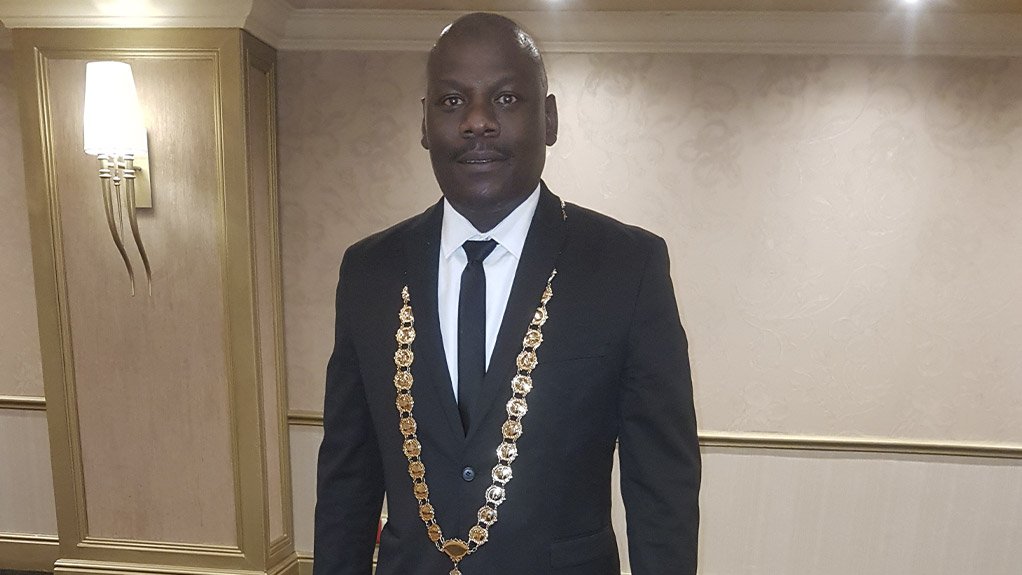The local foundries, forges and casting industry can benefit from following the global trend of metal casting companies implementing Fourth Industrial Revolution (4IR) technologies.
An abundance of infrastructure projects, such as rail projects from State-owned freight utility Transnet, has the potential to benefit the industry, says local metal casting organisation the South African Institute of Foundrymen (SAIF) president Glen Dikgale.
“Metal castings worldwide are implementing 4IR. Some foundries have implemented aspects of artificial intelligence (AI) to produce more with less.”
He explains that AI will also enable companies to analyse data to prevent rejects, improve energy management and become more automated.
Dikgale says, as most foundries do not have capital to invest, 4IR technologies can be used to assist in reducing waste and reworking processes. Using it to automate and streamline processes, such as energy management, is important, as energy consumption in the industry, particularly by older equipment, is very high.
He asserts that SAIF is collaborating with companies and industry stakeholders to implement projects related to energy management and waste foundry sand, and to help foundries comply with atmospheric emission licence regulations.
The organisation also aims to counter the foundry industry’s lack of skills by offering soft skills and technical training at the University of Johannesburg, as well as personalised training tailored for member companies at their premises.
Meanwhile, SAIF is collaborating with the National Foundry Technology Network on initiatives for the foundry industry.
Dikgale says this is important, as local foundries, forges and the casting industry are dealing with significant challenges, including import leakages, environmental issues, interrupted power supply, a lack of healthy order books, policy uncertainty, declining international markets and a changing business environment.
“We have seen seven foundries close last year, among them substantial ones, such as industrial equipment suppliers Metso and Besaans, and many more have had to retrench employees to adjust to declining order books,” he stresses.
Dikgale says the main challenge that foundries are facing is managing change.
“Most foundries are not flexible enough to manage change and remain competitive. This results in a dwindling order book and eventual closure.”
Nevertheless, local foundries are using a variety of strategies to remain active in the industry, mentions Dikgale, adding that these include concentrated efforts to comply with quality and environmental issues and being selective with their order books.
“Companies are attempting to align businesses with the needs of government and State-owned enterprises for acceptable broad-based black economic-empowerment and employment-equity demands.”
Crucially, this provides more opportunities for work in the public sector, particularly in the rail industry, he adds.
“There are opportunities for the local foundry industry. “Transnet uses a considerable amount of castings and the growth of rail projects should benefit the local foundry industry. “Local government is increasingly talking about sourcing equipment locally, so we need to ensure that we comply with the requirements. “We need to localise to bring back the tonnages lost to the global supply chain.”
Dikgale adds that, while the number of imported castings significantly outweigh that of local castings being exported, many imported castings have been successfully manufactured locally for the past few years.
Certain challenges – including high labour costs, coupled with low productivity, as well as high electricity, production and transport costs – are making it significantly more difficult for local companies to become internationally competitive.
“Government must support the metal castings industry – either through incentives or duties on imports. “Localisation must move from being in the talking stage to orders being placed. Sourcing locally must be enforced.
“Castings contribute the most to any manufacturing environment. Our local manufacturing industry will not survive without the foundry industry supplying castings for it to process or add value to. “As South Africans, we can’t afford our metal castings industry to perish,” he concludes.
Edited by: Zandile Mavuso
Creamer Media Senior Deputy Editor: Features
EMAIL THIS ARTICLE SAVE THIS ARTICLE
ARTICLE ENQUIRY
To subscribe email subscriptions@creamermedia.co.za or click here
To advertise email advertising@creamermedia.co.za or click here













